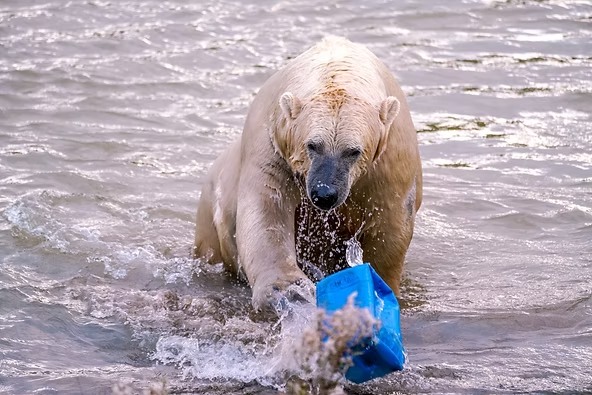Climate Change, Warming Oceans, and the Future of Fisheries
Warming oceans caused by climate change are reshaping marine life in ways that will challenge both ecosystems and global fisheries. A new study from Rutgers University, published in the journal Proceedings of the Royal Society B, reveals that rising temperatures combined with predator-prey dynamics will prevent many fish species from thriving in their optimal conditions. This means fewer productive species to catch in the future, even as they shift into new habitats.
Shifting Species, Shrinking Abundance
As the climate warms, many fish species are expected to move away from their historical ranges toward cooler waters. However, the study found that while species may survive, their numbers will likely decline. For example, cod may still be present in the Atlantic Ocean 200 years from now, but in much smaller populations. This reduced abundance raises the risk of overfishing, as low population growth rates make recovery more difficult.
“Warming coupled with food-web dynamics will be like putting marine biodiversity in a blender,” said Malin Pinsky, coauthor and associate professor in Rutgers’ Department of Ecology, Evolution, and Natural Resources.
Beyond One-Species Models
Earlier research often examined the direct effects of climate change on individual species, predicting how they might move as water warms. While helpful, these single-species models failed to capture a crucial factor: how food-web interactions influence the pace of change. This new research fills that gap by studying trophic interactions—the predator-prey relationships that dictate survival and abundance.
Predators Lag Behind
Using advanced computer models, researchers found that predator-prey dynamics slow down species’ ability to track climate shifts. Large predators, such as sharks or cod, tend to remain longer in their historical ranges compared to their smaller prey. This is partly because new prey species moving into the area can sustain them temporarily. As a result, predators lag further behind climate shifts, creating mismatches across the food web.
“Even after 200 years, marine species will still be lagging behind temperature shifts,” explained lead author E. W. Tekwa of the University of British Columbia. “This is particularly true for those at the top of the food web.”
A Global Reshuffling of Life
The findings highlight a dramatic reorganization of marine ecosystems. Millions of species are already shifting poleward, but the study shows that eating relationships—who consumes whom—play a critical role in how quickly this reshuffling occurs. The Rutgers team developed a “spatially explicit food-web model” that accounted for metabolism, body size, and optimal temperature ranges. The results showed that these interactions slow species’ ability to adapt to warming waters worldwide.
Implications for Fisheries and Conservation
The research paints a mixed picture: while fishers may still find familiar species in future oceans, they will likely encounter fewer individuals, making sustainable fishing more difficult. The results stress the urgency of managing fisheries with climate impacts and food-web dynamics in mind.
“These dynamics will not only be in one place but globally,” Pinsky said. “That does not bode well for marine life, and this is not an effect that has been widely recognized.”

